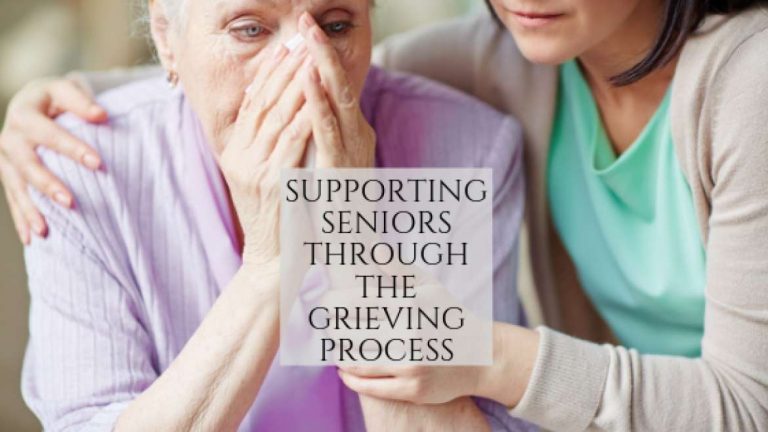The retirement years can be some of the best of our lives. No longer tied to a desk, we can spend our days traveling, enjoying our favorite activities, and spending time with family and friends.
But they can also be among the hardest. Being diagnosed with a chronic illness or disability, moving from home to an assisted living facility, and losing loved ones can leave seniors with an overwhelming sense of grief. And unfortunately, that unbearable sadness and despair may lead to mental and physical health problems.
According to researchers, when compared to younger adults, seniors are more susceptible to infection during times of grief due to the impact of high stress hormones on their immune systems. In addition, untreated depression can exacerbate current health problems, causing a senior to end up hospitalized.
As a caregiver, you can help your loved one through this difficult time, but in many cases, it may require a team of family members, medical professionals and therapists to assist:
- Know the signs of grief and depression. Sorrow doesn’t always display as tears and sadness. If you notice your loved one is eating less, having problems sleeping, losing interest in activities they love, or suffering from unexpected physical problems like headaches, rapid heartbeat or stomach issues, address your concerns and ask them how you can help.
- Stay by their side. Loneliness can elevate the distress a senior may feel. Unfortunately, 60 percent of nursing home residents receive no visits from family or friends. Be available for your loved one as often as you can and encourage them to share their feelings if they are comfortable.
- Be compassionate. Adapting to life with a disability or without their spouse can be a long, complicated process for seniors. Allow your loved one to express their anger and frustration without judgment. Don’t diminish their pain, and don’t tell them to “get over it.” Right now they need your patience and your empathy.
- Share memories of those they have lost. Too many times we don’t talk about people who have passed because we think it might be too painful for the loved ones left behind. However, most seniors want to tell stories about their spouses or family members and what they meant to them. In fact, researchers found that when widows and widowers shared the good times they spent with their spouses, they were happier and healthier 14 months after a death than those who didn’t discuss their loved one or spoke of them with sadness.
- Engage them in activities when they’re ready. When loss first occurs, you can help make this time less stressful by assisting with chores, running errands and managing bills. When your loved one is ready, help them ease back into the activities they enjoy. For instance, they may not want to be alone on their first long walk outside.
- Build a support system. If you find your loved one needs additional mental health care or their sadness grows more significant over time, reach out to someone outside the home who can help. For example, if your loved one is facing a medical diagnosis, contact organizations like the St. Louis chapters of the Alzheimer’s Association or the American Cancer Society for resources and support. If they have lost a spouse or child, there are numerous bereavement support groups across the region that focus on their needs.
Helping you—and your loved one—cope with change
One of the best ways to help your loved one is to make sure you’re taking care of yourself. As a caretaker, if you find yourself depressed or overwhelmed due to your loved one’s loss, reach out to someone who can help. Give yourself a break when needed by bringing a caregiver on board or contact a therapist who specializes in grief. With a strong network behind you, you and your loved one can find a way to work through this painful time in both of your lives.






